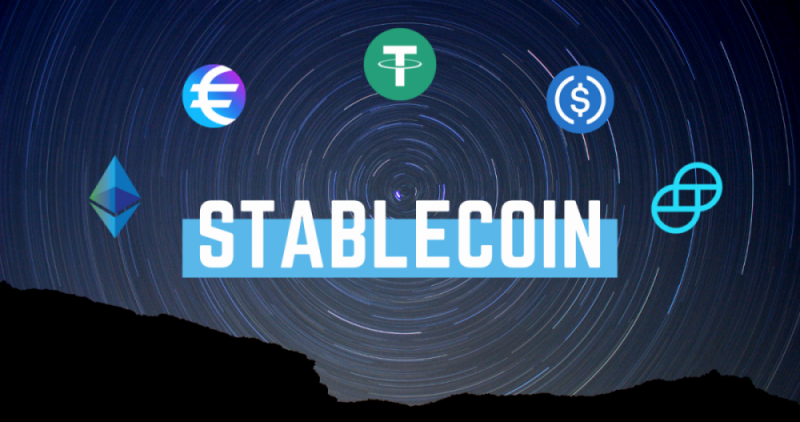Nigeria Signals Greenlight for Stablecoin Innovation Under New Regulatory Vision
26.07.2025 10:00 2 min. read Kosta Gushterov
Nigeria is taking a decisive step toward embracing stablecoin adoption, as the country’s Securities and Exchange Commission (SEC) outlined its readiness to support digital currency innovation—under clear regulatory conditions.
The announcement came during the Nigeria Stablecoin Summit held in Lagos, organized by the Africa Stablecoin Network.
Speaking on behalf of the SEC, Director-General Emomotimi Agama delivered a keynote address titled “Building a Regulatory Framework for Stablecoin Innovation: The Nigerian Perspective.” In his remarks, Agama affirmed that Nigeria is open to stablecoin business, but only within a framework that protects markets and empowers its citizens.
He emphasized that stablecoins are becoming increasingly important in Nigeria’s digital economy, especially as local businesses and freelancers use dollar-pegged digital assets to navigate ongoing naira volatility. According to Agama, this shift is helping drive exponential growth in stablecoin usage across the country.
Agama also highlighted the importance of regulatory frameworks tailored specifically to African realities. While acknowledging international standards, he stressed the need for localized solutions that reflect Nigeria’s market structure and demographic profile.
Central to Nigeria’s evolving regulatory approach is the recently signed Investment and Securities Act (ISA 2025). The act includes specific provisions for the oversight of stablecoins and other digital assets, giving the SEC a stronger legal foundation to manage innovation responsibly.
Agama further revealed that the SEC has already onboarded several startups focused on stablecoin use cases into its regulatory sandbox. This initiative, he noted, balances innovation with risk management and compliance.
Looking ahead, Agama envisioned Nigeria as a future hub for stablecoin-driven commerce across Africa. He expressed hope that Nigerian-developed stablecoins could one day power cross-border trade throughout the continent.
Africa Stablecoin Network President Nathaniel Luz praised the move as a crucial step toward a secure and vibrant digital asset economy in Africa.
-
1
House Clears Path for Landmark Crypto Bills: Vote Set for Thursday
17.07.2025 9:15 2 min. read -
2
Australia Tests CBDCs in 24 Separate Real-World Finance Use Cases
10.07.2025 19:00 2 min. read -
3
U.S. House Passes Sweeping Clarity and GENIUS Acts
17.07.2025 23:29 1 min. read -
4
Senate Confirms Crypto-Linked Nominee Jonathan Gould to Head OCC
11.07.2025 9:00 2 min. read -
5
U.S. Regulators Define Crypto Custody Rules for Banks
15.07.2025 9:00 1 min. read
South Korea Urges Asset Managers to Limit Exposure to Crypto Stock Like Coinbase,MicroStrategy
South Korea’s top financial watchdog has issued informal guidance urging local asset managers to scale back their investments in crypto-related stocks, according to a Korean Herald report.
SEC Reverses Bitwise ETF Approval Just Hours After Greenlight
In a surprising move on Tuesday, the U.S. Securities and Exchange Commission (SEC) initially approved Bitwise’s proposal to convert its cryptocurrency index fund into a full-fledged exchange-traded fund (ETF)—only to halt the decision just hours later.
Senate Republicans Unveil Crypto Market Bill to Expand CLARITY Act
Senators Tim Scott, Cynthia Lummis, Bill Hagerty, and Bernie Moreno (R-OH) have released a discussion draft of a new digital asset market structure bill—framed as the Senate counterpart to the CLARITY Act.
Banking Trade Groups Urge OCC to Halt Digital Trust Bank Approvals
Five major banking associations are urging the Office of the Comptroller of the Currency (OCC) to delay approval of new national trust bank charters for digital asset firms, including Ripple, Fidelity Digital Assets, National Digital TR CO, and First National Digital Currency Bank.
-
1
House Clears Path for Landmark Crypto Bills: Vote Set for Thursday
17.07.2025 9:15 2 min. read -
2
Australia Tests CBDCs in 24 Separate Real-World Finance Use Cases
10.07.2025 19:00 2 min. read -
3
U.S. House Passes Sweeping Clarity and GENIUS Acts
17.07.2025 23:29 1 min. read -
4
Senate Confirms Crypto-Linked Nominee Jonathan Gould to Head OCC
11.07.2025 9:00 2 min. read -
5
U.S. Regulators Define Crypto Custody Rules for Banks
15.07.2025 9:00 1 min. read


